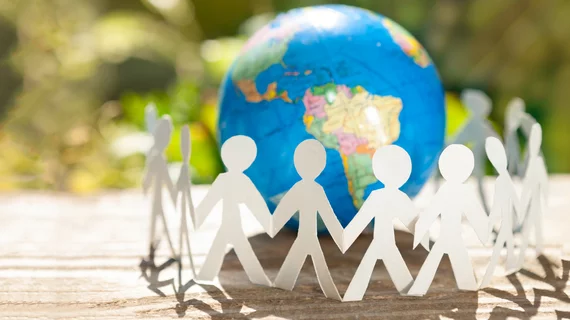The World Health Organization (WHO) has declared monkeypox a public health emergency in light of thousands of cases spreading across the globe.
More than 15,000 cases have been identified worldwide, according to WHO, with more than two-thirds of cases reported in the WHO European Region. Monkeypox is a viral zoonosis with symptoms similar to those seen in the past in smallpox patients, though it is considered less severe. Monkeypox primarily occurs in central and west Africa, often in proximity to tropical rainforests, according to WHO.
It is contracted as a result of prolonged personal contact with an infected individual (including sexual contact) or coming into contact with their contaminated belongings. Symptoms usually include: rash, spots, ulcers, or blister-like lesions anywhere on the body; swollen and painful lymph glands; and fever, headache and muscle aches, chills or exhaustion.
WHO declared monkeypox a Public Health Emergency of International Concern––the agency’s highest level of alert––on July 23. However, WHO noted that the outbreak currently only affects gay men, despite other cases among children and women.
“Although I am declaring a public health emergency of international concern, for the moment this is an outbreak that is concentrated among men who have sex with men, especially those with multiple sexual partners,” said WHO Director-General Tedros Adhanom Ghebreyesus on July 23. “That means that this is an outbreak that can be stopped with the right strategies in the right groups. It’s therefore essential that all countries work closely with communities of men who have sex with men, to design and deliver effective information and services, and to adopt measures that protect the health, human rights and dignity of affected communities.”
Recent research published in the New England Journal of Medicine (NEJM) has revealed the virus, which can be spread in ways other than sex, is primarily impacting men who have sex with other men.
According to the Centers for Disease Control and Prevention (CDC), the U.S. leads the globe in known cases, with more than 3,400 confirmed or suspected monkeypox cases as of July 26. CDC Director Michelle Walensky, MD, MPH, announced the agency’s response to the monkeypox outbreak in the U.S., including vaccination and testing efforts, on July 22.

